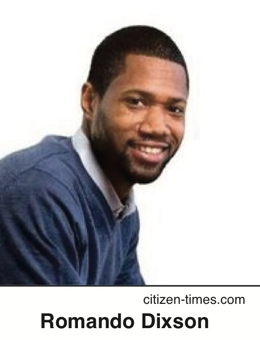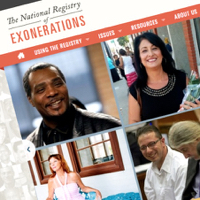Rascals case in brief
In the beginning, in 1989, more than 90 children at the Little Rascals Day Care Center in Edenton, North Carolina, accused a total of 20 adults with 429 instances of sexual abuse over a three-year period. It may have all begun with one parent’s complaint about punishment given her child.
Among the alleged perpetrators: the sheriff and mayor. But prosecutors would charge only Robin Byrum, Darlene Harris, Elizabeth “Betsy” Kelly, Robert “Bob” Kelly, Willard Scott Privott, Shelley Stone and Dawn Wilson – the Edenton 7.
Along with sodomy and beatings, allegations included a baby killed with a handgun, a child being hung upside down from a tree and being set on fire and countless other fantastic incidents involving spaceships, hot air balloons, pirate ships and trained sharks.
By the time prosecutors dropped the last charges in 1997, Little Rascals had become North Carolina’s longest and most costly criminal trial. Prosecutors kept defendants jailed in hopes at least one would turn against their supposed co-conspirators. Remarkably, none did. Another shameful record: Five defendants had to wait longer to face their accusers in court than anyone else in North Carolina history.
Between 1991 and 1997, Ofra Bikel produced three extraordinary episodes on the Little Rascals case for the PBS series “Frontline.” Although “Innocence Lost” did not deter prosecutors, it exposed their tactics and fostered nationwide skepticism and dismay.
With each passing year, the absurdity of the Little Rascals charges has become more obvious. But no admission of error has ever come from prosecutors, police, interviewers or parents. This site is devoted to the issues raised by this case.
On Facebook
Click for earlier Facebook posts archived on this site
Click to go to
Today’s random selection from the Little Rascals Day Care archives….
Click for earlier Facebook posts archived on this site
Click to go to
Today’s random selection from the Little Rascals Day Care archives….
Junior Chandler’s homefolks updated on his case
 Sept. 29, 2014
Sept. 29, 2014
“Duke law professor Theresa Newman has three boxes full of files about Andrew Chandler Jr.’s case: details about the bizarre allegations, the expert testimony that would not be admissible today and the multiple appeals….”
– From “Duke law clinic to review 1987 conviction” in the Asheville Citizen-Times (Sept. 27)
Thanks to reporter Romando Dixson for providing a thorough recap of the Chandler case, pegged to the recently expressed interest of the Duke Law School Wrongful Convictions Clinic.
Publication in the Asheville paper is especially welcome for Junior’s friends, family and other supporters in nearby Madison County, who likely haven’t seen the case mentioned in print since his conviction in 1987.
Can we cope with seeing wrongful convictions?
 Feb. 20, 2015
Feb. 20, 2015
“Exonerations, which were once exceedingly rare, have become regular features of the American justice system. The National Registry of Exonerations records 1,535 exonerations nationwide (including Bob Kelly and Dawn Wilson) since records began in 1989….
“The 125 wrongful convictions thrown out in 2014… might seem paltry compared to the estimated 1 million felony convictions per year, but the number of wrongful convictions is likely far higher. Many jurisdictions don’t devote the same level of resources towards exonerations that North Carolina does (with its Innocence Inquiry Commission), and even then the process can be achingly slow.
“For a justice system that exalts due process and the presumption of innocence, any wrongful conviction represents a serious breakdown of justice. Even a handful of high-profile wrongful convictions can ripple throughout the public consciousness, undermining confidence in the system. ‘The country is having to psychically cope with conclusive evidence that we make, with some regularity, errors in criminal trial outcomes,’ said (Mary Kelly Tate, director of the University of Richmond law school’s Institute for Actual Innocence).”
– From “Guilty, Then Proven Innocent” by Matt Ford at The Atlantic (Feb. 9)
Another bumper harvest for National Registry of Exonerations
 March 20, 2017
March 20, 2017
“America saw another record year for the number of prisoners being exonerated, according to the National Registry of Exonerations, a project of University of California Irvine Newkirk Center for Science & Society, University of Michigan Law School, and Michigan State University College of Law.
“For 2016, 166 people were exonerated of crimes and released from prison, 52 of them for murder. Of all the exonerations, 70 cases involved official misconduct of some sort, and in 74 of the cases, convictions came from guilty pleas. And in 94 cases (also a record) it turned out that no actual crime occurred at all. These were mostly drug cases but also some child sex abuse cases. Most famously, the San Antonio Four, four women convicted in 1998 in a fabricated satanic child sex abuse ring scandal, were released in 2016 after it finally became clear the crimes never occurred.”
– From “Decades of exoneration stats show blacks more likely to wrongfully convicted” by Scott Shackford at reason.com (March 7)
Of the Edenton Seven, only Bob Kelly and Dawn Wilson, whose convictions were overturned, qualify for the National Registry of Exonerations. As spokesman Ted Koehler told me five years ago, “The Edenton case was a terrible witch hunt. Regretfully, though, [Betsy] Kelly’s and [Scott] Privott’s guilty pleas and the dropped charges against [Robin] Byrum, [Shelley] Stone, and [Darlene] Harris do not fit our definition of an exoneration….”
![]()
‘Capturing the Friedmans’ didn’t capture the Kellys
June 26, 2013
The suburban New York child sex abuse case documented in the Oscar-nominated “Capturing the Friedmans” (2003) returned to the spotlight Monday, this time because of a review panel’s finding that Jesse Friedman had in fact been rightfully convicted.
Although the New York Times describes the Friedman case as having come “to symbolize an era of sensational, often-suspect accusations of child molestation,” many aspects – including the 1988 confessions of both the defendant and his father – make it an outlier to the epidemic of day-care cases of that era.
The review panel itself emphasized this distinction, the Associated Press points out:
“The Friedman case has drawn comparisons to the 1980s McMartin Preschool scandal, but the investigators said they ‘were in no way similar.’ In the McMartin case, the report noted, more than 200 preschool children described being sexually abused by teachers, but only after months of highly suggestive questioning by social workers working with prosecutors. The report noted in the Friedman case, the victims were more than twice as old as the McMartin preschoolers and many in the Friedman case disclosed abuse quickly.”
Regardless, there are similarities, too. In an interview with the Village Voice interview last month, Jesse Friedman had this to say about the young computer students who testified against him:
“When I was in prison, my hope always hung on the idea that, give it five or 10 years; once they get to college, once they’re actual adults, once they’re old enough to no longer be living at home with their parents in Great Neck, they will come forward and admit that they lied.
“When (journalist( Debbie Nathan came to visit me, she told me that most of the complainants in the McMartin case publicly affirm that they were raped and abused in the McMartin Preschool. Whereas that case has been thoroughly, completely vetted beyond all doubt that nothing happened. And yet the kids involved believe that they were abused. She said, ‘You really can’t hang your hopes on the idea that the kids know that they lied and that nothing happened. Because they might very well think that something happened.’ “
Do the now-grown child-witnesses in the Little Rascals case “know that they lied and that nothing happened”? Or does the shapeless memory of their supposed abuse remain forever sealed from self-examination?











0 CommentsComment on Facebook